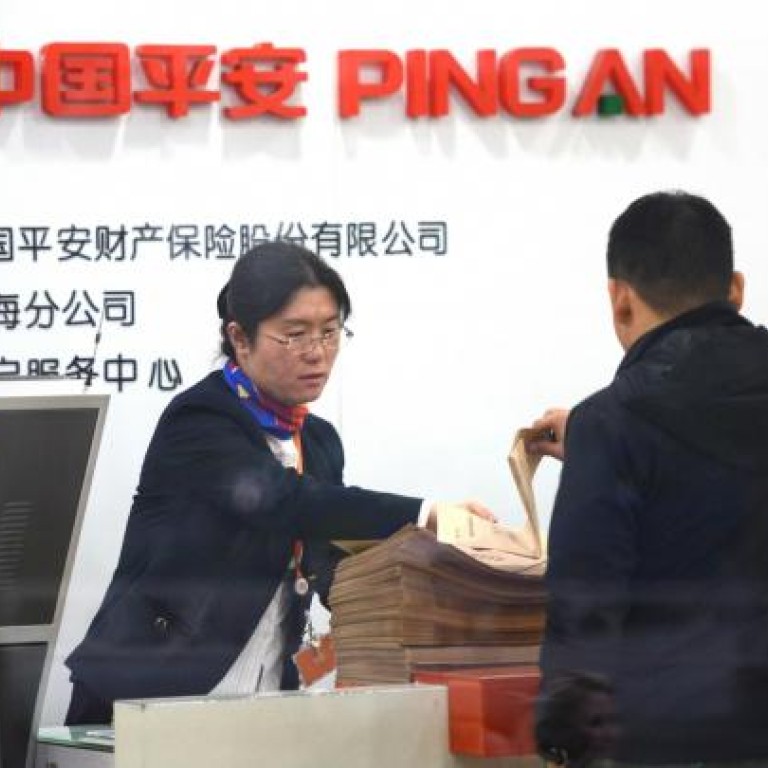
Beijing cash behind Ping An stake sale raises eyebrows
'Rare and risky' deal where CDB will fund most of Thai group's acquisition raises eyebrows
More than half of the money that Thailand's Charoen Pokphand (CP) Group plans to spend on acquiring a major stake in Ping An Insurance comes from the central government-controlled China Development Bank (CDB), sources say - an arrangement market experts say is rare.

Details were vague. HSBC only said the deal would be closed in two stages - CP would first pay about 20 per cent for the shares with its own cash. The remaining 80 per cent would be paid in a combination of cash and loans sponsored by CDB.
Neither HSBC nor CP disclosed how much money the Thai food exporter needed to borrow from CDB to complete the second-stage transaction.
Sources in the financial industry familiar with the deal told the that most of the money would come from the mainland bank.
Such an arrangement is widely considered unusual and risky. It raises questions as to why Beijing will allow a foreign investor to borrow so heavily from a state-controlled bank to help it acquire a major stake in a key financial institution.
It appears that CP - which has limited financial business experience - will bring neither capital nor expertise to the table.
To finance such a large chunk of the US$9.4 billion deal, CDB would require approval from top leaders, the sources said, on condition of anonymity.
"It's CDB not anyone else. For such a big deal, the State Council [China's cabinet] must have been given a heads-up and agreed in principle to give the loan," said one of the sources. The State Council is led by Premier Wen Jiabao , who will officially retire early next year.
"Just imagine, if today an American hedge fund says 'I want to buy the Ping An stake but I don't have enough money, could you loan some to me?' What will CDB and Beijing say?" the source asked.
In 2006, a Citigroup-led consortium won a US$3.1 billion bid for a roughly 86 per cent stake in the troubled Guangdong Development Bank. To close the deal, the consortium had to get special permission from the highest level in the central government to allow foreign investors such as IBM, which is a member of the consortium, to borrow money from Chinese banks.
In comparison, the loan deal that CP has managed to pull off is all the more remarkable.
A source said CP was among the first suitors when HSBC initially started to look for potential buyers for its Ping An stake.
"Initially, CP didn't take this offer too serious as it believed it would not have the financial ability to take the entire stake from HSBC. Things changed fast when CDB stepped in and agreed to support the deal and the deal was then quickly sealed," said one of the sources. UBS is the only sell-side adviser for CP in this deal.


